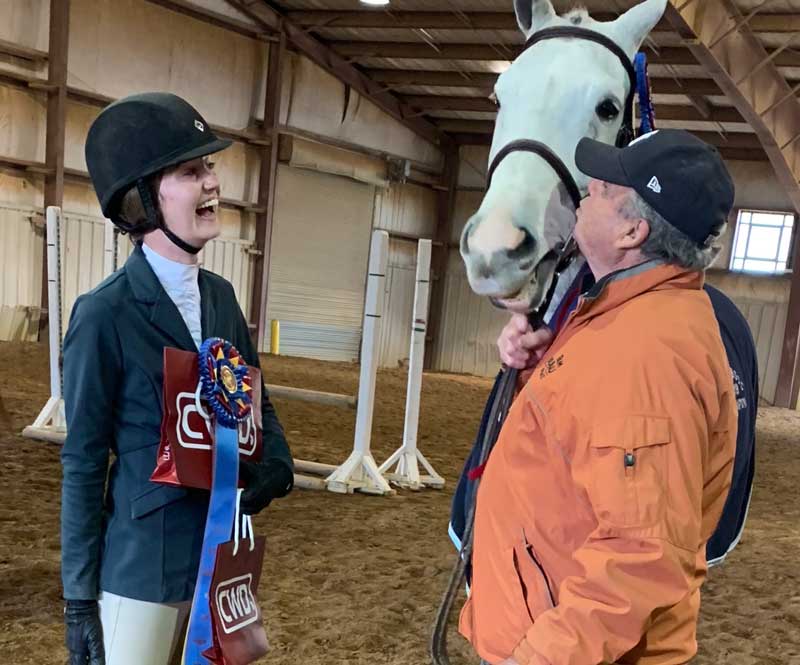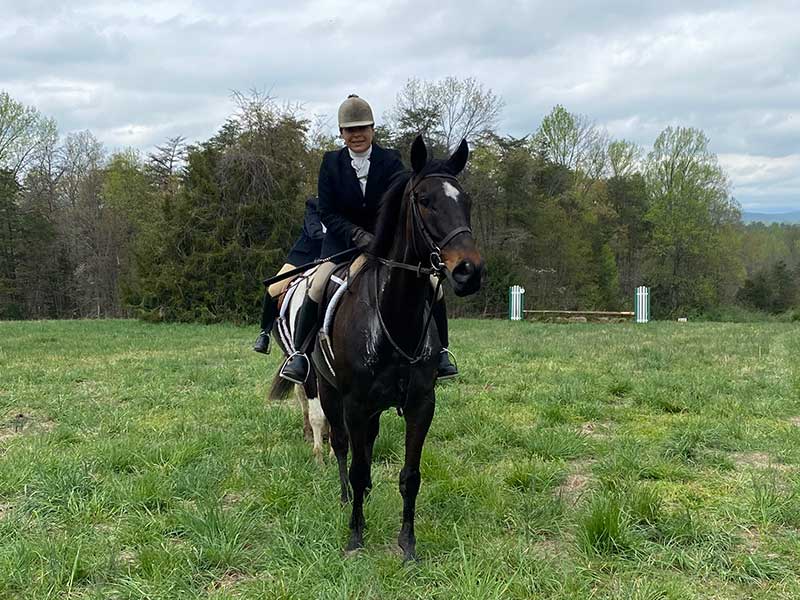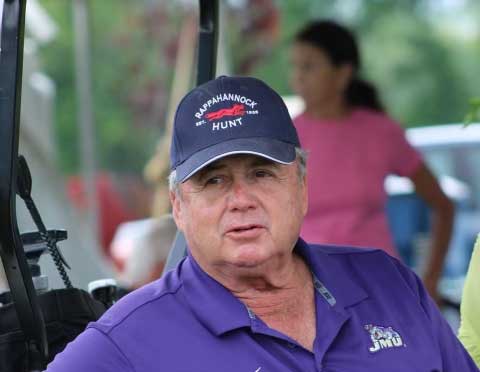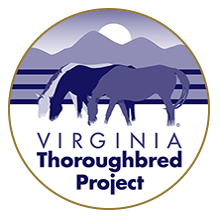Perspectives on Thoroughbreds as Hunter Prospects
By Oliver Brown, MFH
I have a warm spot in my heart for Thoroughbreds. Don’t get me wrong, I appreciate and admire all horse breeds, but from my perspective, the intelligence, heart, and agility of the Thoroughbred makes them an excellent choice for the hunter ring or hunt field.
However, there is an important caveat. The retraining of an off-the-track Thoroughbred (OTTB) is crucial to its success, and needs to be done with patience by those with the skills and knowledge to work with these horses. You must remember, when retiring from racing, all these former racehorses know is walking, jogging, and running fast in one direction.
To be given a fair chance and to be equally evaluated in the show ring, proper retraining is essential.

Oliver Brown and student celebrating their success at a recent show.
As a hunter and equitation judge at both AA rated and local shows, I notice a common theme: Improperly retrained OTTBs paired with the wrong rider. For example, I often see a horse recently off the track with a rider that is hunched over, pulling on the mouth and waving the crop around. All of these are signals to go in the horse’s past career. In my day, we would get horses off the track and jump them in the ring one or two times per week. Hacking out often was a significant part of their retraining, and we would ride on as loose a rein as possible. Lunging was not excessive. Some lunging at the walk and trot can be beneficial, but excessive cantering or galloping on the lunge line is encouraging behavior of their former career.
The point is patience and an approach that balances retraining and appropriate rider/mount pairing.
Since the 80s, Warmbloods have dominated the hunter ring due partly to the notion that they are “quieter” than the OTTB. This is of course true when you are critiquing a well trained and schooled Warmblood compared to an OTTB that has been off the track for a short time, or for that matter one that has been off for a longer time with poor retraining. In a sense, you are comparing apples to oranges. Paralleling the shift from Thoroughbreds to Warmbloods in the hunter world is judging favoring a “duller” way of going opposed to the more animated expression of Thoroughbreds. All being considered, the entry of the OTTB back into the show world has met challenges.

VTP board member Sally Hamlin’s OTTB Sky Hy Star out fox hunting.
I often try to pinpoint what was the turning point to the Thoroughbred noticeably losing popularity in the hunter world. The start of the import trend of Warmbloods into the U.S. coincided with the reduction in fence height to 3′ and below to accommodate more levels of amateur riders. Back in my day, the jump heights were 3.6′ to 4′. This helped train the horse to back up and (slow down) with an experienced rider. Many riders today have the ability but lack patience, or vice versa. I have had all levels of riders that have successfully ridden OTTBs with the right retraining of both rider and horse. It is important to match the rider to a horse that is compatible. For example, a nervous rider may not be compatible with a given horse fox hunting, but be more confident in the constraints of the ring having a calming influence on the horse rider combinations.
I cannot emphasize the heart, intelligence, work ethic and loyalty of the Thoroughbred horse enough. However, not all can be retrained as suitable riding horses regardless of the disciplines, but this is true of all breeds.
The key things that I think are of the utmost importance when transitioning a racehorse into a second career are:
- Time and patience
- Environment
- A proper “courtship” to see if the pairing of horse and rider is doable
- Good horsemanship
- Education
- Not being afraid to seek advice
I have spoken from the lens of the hunter/equitation and fox hunting disciplines, but the OTTB is suitable for many. It is so important to do justice to the retired Thoroughbred racehorse and give him/her a fair chance in their second career potential.

About the Author
Oliver Brown‘s experience with horses – of many breeds and disciplines – spans his entire life. He started breaking ponies at age seven, and by 10 was prepping Thoroughbreds for the track and retraining them for the hunter world. Oliver managed Eaton Sales for more than 20 years, has trained steeplechase horses, ridden and trained hunters and fox hunters, judged hunter breeding, equitation and hunters as an R-Judge. Oliver has served on many committees and boards of professional equestrian organizations, and currently coaches many children and adults.
